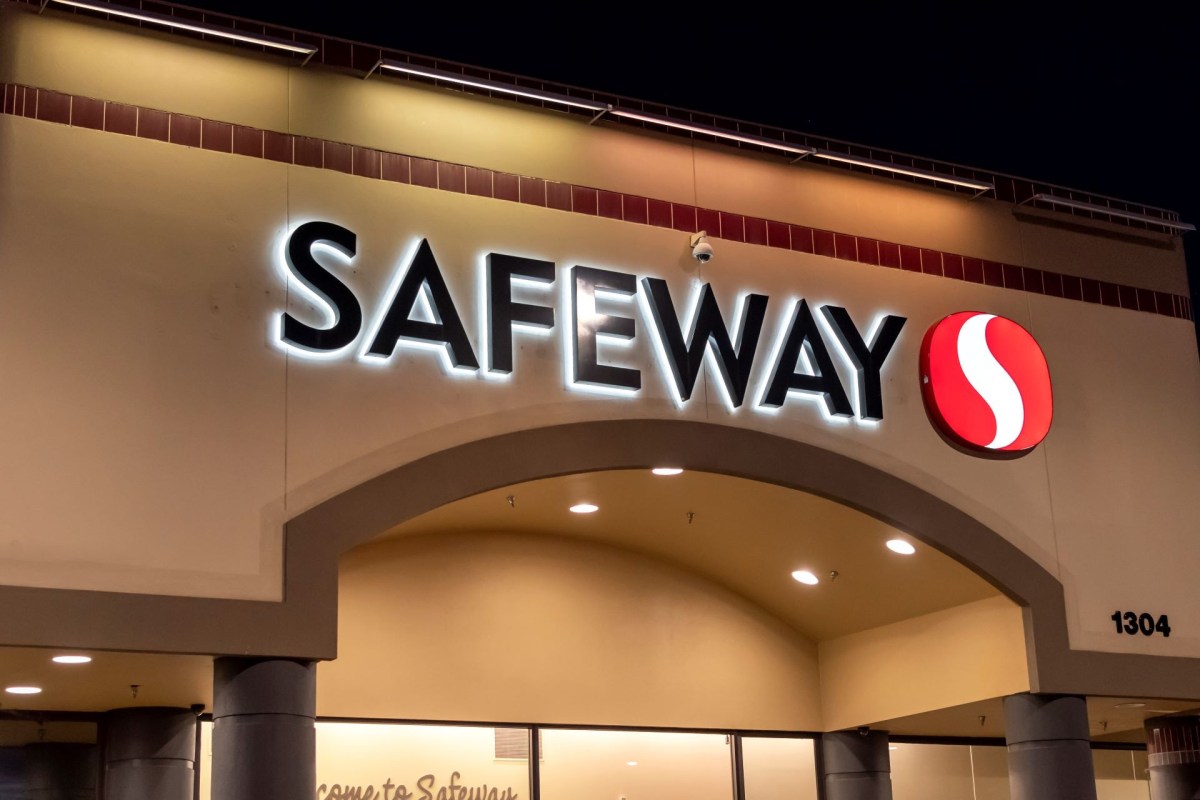Safeway stores across the country are living up to the company's name by giving customers a safe way to dispose of unwanted medications with drug disposal kiosks.
What are drug disposal kiosks?
Safeway's drug disposal kiosks are tall, gray bins that look like skinny post office drop boxes. Located near the pharmacy inside each store, the self-serve kiosks are the ideal place to toss your unused medications.
You can take any medication — prescription pills, liquids, and over-the-counter meds — and dump them into the bin.
Why are drug disposal kiosks important?
Prescription medications can be very beneficial when taken as directed, but they are often harmful — or even deadly — when misused.
According to the National Safety Council, over 98,000 people died from preventable drug overdoses in 2021. Meanwhile, one in four teens has misused or abused prescription drugs.
The medicine cabinet at home is often the easiest place for kids to find drugs, either accidentally or purposefully. Two-thirds of teens who misused pain relievers have said they got them from friends or family.
Misusing medications like opioids, stimulants, and depressants can have immediate side effects, like vomiting, decreased respiratory function, and seizures. There are also plenty of long-term effects these drugs can have, especially on adolescent brains.
"We just want to make sure that what's in a patient's home is a medication that they're taking, so again there's no mix-up, there's no side effects that could cause some tragic events," Safeway's director of pharmacy operations Nikki Price said.
How do drug disposal kiosks help the environment?
A common misconception is that a safe way to dispose of medications is to flush them down the toilet. While that may keep the drugs from posing an immediate threat to you and your family, those medicines can end up back in our drinking water or lakes, rivers, and streams — which can hurt you when you drink it and also wreak havoc on those ecosystems.
For example, some antidepressants include endocrine-disrupting compounds that can mess with the reproduction and growth of frogs and fish.
The Minnesota Pollution Control Agency and researchers from the University of Minnesota found antibiotics at low levels in the state's lakes, rivers, and streams. The more bacteria are exposed to antibiotics, the more they will build up resistance to antibiotics.
Other disposal options
Safeway is one of many places to dispose of your prescription meds safely.
Many other pharmacies, like CVS, have drug disposal boxes. Some communities have drug disposal days, and there's a national drug take-back day when many law enforcement agencies accept unwanted medications, no questions asked.
If you've finished your medication and are left with empty pill bottles, there's a good disposal method for that, too. Some organizations, like Matthew 25: Ministries, are specifically looking for pill bottle donations to redistribute them to people who need them.
One thing to remember when disposing of your medications is to remove the label with your personal information — or at least take a Sharpie to it.
Join our free newsletter for easy tips to save more, waste less, and help yourself while helping the planet.









